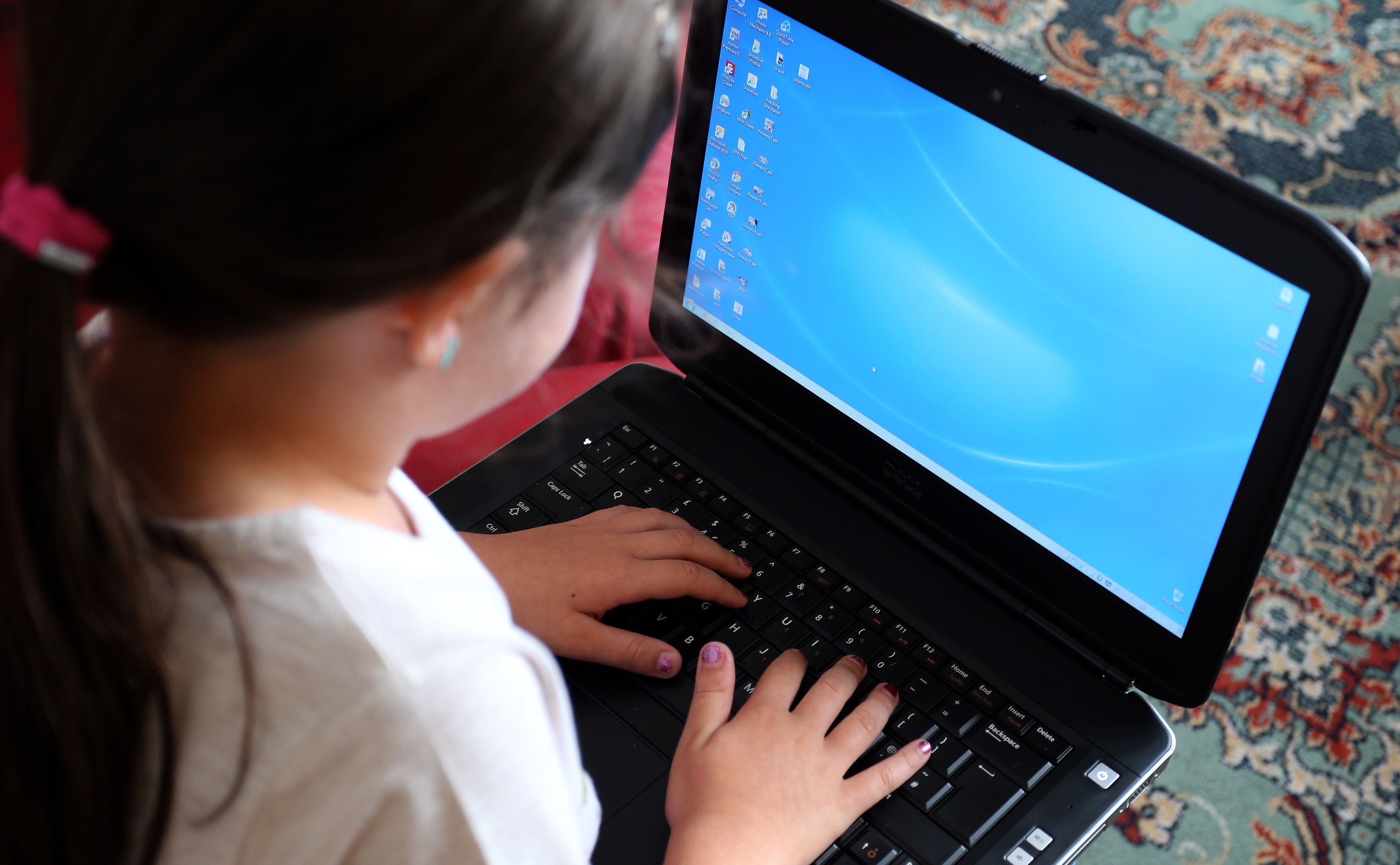Girls aged 11-13 ‘more at risk of online grooming than ever before’
Research reveals 77% rise in reports of so-called ‘self-generated’ online abuse imagery

Your support helps us to tell the story
From reproductive rights to climate change to Big Tech, The Independent is on the ground when the story is developing. Whether it's investigating the financials of Elon Musk's pro-Trump PAC or producing our latest documentary, 'The A Word', which shines a light on the American women fighting for reproductive rights, we know how important it is to parse out the facts from the messaging.
At such a critical moment in US history, we need reporters on the ground. Your donation allows us to keep sending journalists to speak to both sides of the story.
The Independent is trusted by Americans across the entire political spectrum. And unlike many other quality news outlets, we choose not to lock Americans out of our reporting and analysis with paywalls. We believe quality journalism should be available to everyone, paid for by those who can afford it.
Your support makes all the difference.Girls aged between 11 and 13 are more at risk of being groomed by sexual predators on the internet than ever before, new figures show.
Research by the Internet Watch Foundation warned perpetrators “groom, bully, and coerce” victims into recording their own sexual abuse in bedrooms of their parents’ homes - with the images and videos then widely posted on the internet.
Fresh data from the organisation, which removes child abuse imagery from the internet, reveals 68,000 cases of self-generated material were discovered last year, which means this form of abuse now makes up 44 per cent of the content it cracked down on last year.
This constitutes a 77 per cent surge on the 38,400 reports of so-called “self-generated” material in 2019.
While young boys are also subjected to this horrific form of abuse, the victims were 11 to 13-year-old girls in 80 per cent of the cases. Experts say the grooming process can take place far more rapidly online than in person and self-generated content has risen exponentially each year since 2014.
Susie Hargreaves OBE, the Internet Watch Foundation’s chief executive, said: “The scale of the problem is appalling, and our fear is without intervention it will get worse, and more and more girls will fall victim to this pernicious and manipulative form of abuse.
“This is a pivotal time. With more people spending more time online, predators are finding new ways to contact and manipulate children who are, in many cases, a captive audience at home with their devices. Lockdown has made this worse.”
Ms Hargreves said elements of their new campaign - which has the backing of the Home Office and Microsoft - to educate children and parents about the danger of online sexual predators are “shocking”.
She added: “But the threat and the abuse is shocking. We don’t want to frighten people, but we do want to build resilience to the threat of self-generated sexual abuse of children. We want to help teenage girls to recognise the actions that constitute self-generated sexual abuse as abuse.
“We want them to feel empowered to take control, and to understand how to deal with inappropriate requests and report them to a trusted source.”
Tink Palmer, chief executive of the Marie Collins Foundation, a charity that supports victims of child sexual abuse and their families, said this form of grooming can have long-term repercussions on victims’ lives.
She said: “In many cases, it is pre-pubescent children who are being targeted. They are less accomplished in their social, emotional and psychological development.
“They listen to grown-ups without questioning them, whereas teenagers are more likely to push back against what an adult tells them.”
She said they speak to victims who say they understood what they were doing “was wrong” but felt coerced into doing it.
“They are likely to feel confused,” Ms Palmer added. “If it’s a fearful situation, that will be something they carry forward and will, almost inevitably, cause problematic behaviours or understandings about relationships.”
The campaign, which is titled “Gurls out loud”, will target teenage girls via social media channels like Instagram, Snapchat, TikTok, YouTube, and Google display.
Priti Patel, the Home Secretary, said: “The scale and severity of online child sexual abuse is shocking, and highlights the importance of our proposed Online Safety legislation requiring technology companies to keep their users safe online, particularly children.
“But these companies should not wait for legislation to be in place before they take action to address these abhorrent crimes. The government has already set out vital steps the tech giants can take to stop sick predators operating on their platforms”.
Last spring, The Independent reported girls are at increased risk of being groomed online during the pandemic as they spend more time online and out of school. Frontline service providers warned they were already seeing teenage girls struggling with their mental health due to the upheaval of the Covid-19 crisis and perpetrators could take advantage of this increased vulnerability.
Join our commenting forum
Join thought-provoking conversations, follow other Independent readers and see their replies
Comments